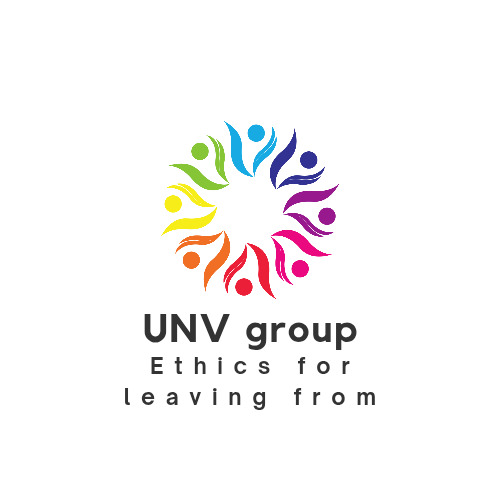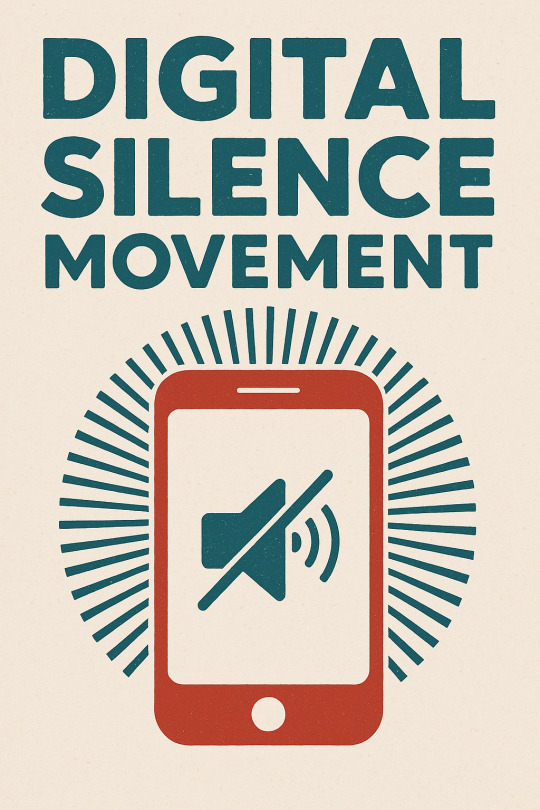Text
𝗖𝗵𝗶𝗹𝗱 𝗧𝗿𝗮𝘂𝗺𝗮
We all have some form of it, only the degree, the impact, and how we’ve coped truly differ.
Child trauma isn’t just about major events like abuse or loss.
It’s also the subtle, everyday experiences that leave emotional wounds, especially when a child is too young to understand or express what they feel.
𝗦𝗼𝗺𝗲𝘁𝗶𝗺𝗲𝘀, 𝘀𝗶𝗹𝗲𝗻𝗰𝗲 𝗵𝘂𝗿𝘁𝘀 𝗺𝗼𝗿𝗲 𝘁𝗵𝘀𝗻 𝘀𝗰𝗮𝗿𝘀.
Unseen forms of child trauma may include:
– Being constantly compared
– Not feeling emotionally safe
– Parents fighting in front of you
– Being told to “stop crying”
– Carrying adult responsibilities too early
– Not being hugged, affirmed, or listened to
𝗧𝗵𝗲𝘀𝗲 𝗹𝗲𝗮𝘃𝗲 𝗺𝗮𝗿𝗸𝘀 𝘁𝗼𝗼
Unhealed child trauma often shows up in adulthood as:
– People-pleasing
– Fear of abandonment
– Low self-esteem
– Anxiety or overthinking
– Avoiding conflict at all cost
– Struggling with trust or emotional intimacy
𝗬𝗼𝘂 𝗮𝗿𝗲 𝗻𝗼𝘁 "𝘁𝗼𝗼 𝘀𝗲𝗻𝘀𝗶𝘁𝗶𝘃𝗲". 𝗬𝗼𝘂 𝗮𝗿𝗲 𝘀𝘁𝗶𝗹𝗹 𝗵𝗲𝗮𝗹𝗶𝗻𝗴
Childhood trauma can affect your mental and physical health.
It can increase your risk of:
– Chronic stress
– Digestive issues
– Sleep disorders
– Emotional eating
– Depression or anxiety
Healing isn’t just emotional, it’s a step toward whole health.
You don’t have to stay in survival mode.
– Therapy helps
– Journaling brings clarity
– Boundaries are necessary
– Talking about it is powerful
– Prayer and reflection soothe the soul
Your healing is valid. Your inner child still deserves peace.
There’s strength in acknowledging what hurt you, and grace in choosing to heal.
You are not broken.
You are healing.
And that is a powerful journey to be proud of.

0 notes
Text
𝗧𝗛𝗘 𝗔𝗖𝗧 𝗢𝗙 𝗦𝗬𝗡𝗘𝗥𝗚𝗜𝗦𝗜𝗡𝗚
To synergize is to interact or collaborate with one or more other agents to produce a joint effect greater than the sum of individual effects. Simply put, synergy means "two heads are better than one.
Synergizing is the practice of collaborating creatively. It is teamwork, open-mindedness, and the thrill of discovering fresh answers to old problems. But it does not happen by itself. It's a process in which people bring all of their personal experience and skills to the table.
People frequently linger on a subject not because they are not making an attempt but because their personal input alone may not be sufficient. At times, it's all because they want to take sole credit for the task. To them, it's all about me, not us. As a result, individuals are stuck and deny the help that is right at their fingertips.
Others refused to synergize, mostly because they wanted to keep all of the benefits for themselves. The issue with others is that they are resistant to change. As it was in the beginning, so it will be now and forevermore. Change is too difficult for them. Nonetheless, they seek solutions to long-standing problems.
Others appear unable to deal with differences between themselves and others. Differentiation is what drives synergy.
Many people confuse uniformity with unity and sameness with oneness. Boring, in a word! Differences should be viewed as assets rather than liabilities. Do you actually value people's mental, emotional, and psychological differences? Or do you wish that everyone would just agree with you so that everyone could get along?
They liven things up. Victories are cheap when we collaborate, because you can draw on the strength, knowledge, expertise, and resources of others while simultaneously bringing your own. What you lack, others have in abundance.
Do you also know that during the creation of the earth, the almighty God himself synergized? As a result, the phrase "let us make man in our own image" appears.
Do you desire cheap wins?
Synergize!

0 notes
Text
𝗘𝗧𝗛𝗜𝗖𝗦 𝗙𝗢𝗥 𝗗𝗘𝗣𝗔𝗥𝗧𝗨𝗥𝗘 𝗔𝗡𝗗 𝗟𝗘𝗔𝗩𝗜𝗡𝗚 𝗔 GROUP
Leaving a group is something that happens. At times, people who never intended to leave a group are forced to leave becuse of some reasons like:
• Someone receives an instruction to leave from their Lords.
• Misunderstandings
• Unhealed wounds
• Accustions
• Conflicts
• Ingratitude
• Pride
If you have to leave a group there are certain standards of behaviour expected for you as an educated.
1.𝗜𝗳 𝗽𝗼𝘀𝘀𝗶𝗯𝗹𝗲 𝗴𝗶𝘃𝗲 𝗮 𝗻𝗼𝘁𝗶𝗰𝗲 𝗼𝗳 𝘆𝗼𝘂𝗿 𝗶𝗻𝘁𝗲𝗻𝘁𝗶𝗼𝗻𝘀 𝘁𝗼 𝗹𝗲𝗮𝘃𝗲 𝘁𝗵𝗲 group
Be released with a blessing from the group.
Dont make it as a suprise, it will seem evil and calculated. Say a proper goodbye if possible.
2.𝗜𝗳 𝘆𝗼𝘂 𝗹𝗲𝗮𝘃𝗲,GO 𝗮𝗹𝗼𝗻𝗲
Do not influence other members to leave with you or to hate the group or admins. Go alone quite with discipline and humility.
3.𝗕𝗲 𝗴𝗿𝗲𝗮𝘁𝗳𝘂𝗹 𝘁𝗼 𝘁𝗵𝗲 group 𝘄𝗵𝗶𝗰𝗵 𝘆𝗼𝘂 𝗮𝗿𝗲 𝗹𝗲𝗮𝘃𝗶𝗻𝗴
Dont spread evil rumours about your former church, don't be involved in conspiracy, it won't work for you, close your mouth and mind your own business.
4.𝗗𝗼 𝗻𝗼𝘁 "𝗺𝘂𝗱𝗱𝘆" 𝘁𝗵𝗲 𝘄𝗮𝘁𝗲𝗿𝘀 𝗮𝘀 𝘆𝗼𝘂 𝗹𝗲𝗮𝘃𝗲
Remember, that group has raised you, trained you, Equipped you, prayed for you and you are blessed because of that group. Dont say bad things about the group or admin you just left. Don't spread your mud on others, leave them alone. You came alone and if you feel to go just go the way you came, don't destroy it.
5.𝗗𝗼𝗻'𝘁 𝘀𝗲𝗽𝗮𝗿𝗮𝘁𝗲 𝘆𝗼𝘂𝗿𝘀𝗲𝗹𝗳 𝗳𝗿𝗼𝗺 𝗵𝗲𝗮𝗹𝘁𝗵𝘆 𝗿𝗲𝗹𝗮𝘁𝗶𝗼𝗻𝘀𝗵𝗶𝗽𝘀.
Remember, the group is not an building, organization, a denomination or an institution. It is an organism,a place of giving life and hope. It’s people who love learning new things and each other.
So even if you have to leave a specific platform, don’t make the mistake of disconnecting yourself from healthy relationships with fellow educators. As you negotiate the challenge of finding a new home, those relationships will be more important than ever.
In fact, maintaining healthy relationships with other educators is probably the most significant determiner of whether-or-not you’ll find a new, healthy home or drift away from – and maybe from the faith – entirely. You reap what you sow.
7.𝗔𝘃𝗼𝗶𝗱 𝗯𝗲𝗶𝗻𝗴 𝗰𝘂𝗿𝘀𝗲𝗱 𝘄𝗵𝗲𝗻 𝘆𝗼𝘂 𝗹𝗲𝗮𝘃𝗲.
Some members are facing challenges in their new groups becuse they attracted a curse from their former members of the group you stayed. Dont leave a wrong way.Otherwise leave blessed.
In other words, if there’s a curse there’s always a cause. *A curse is a spiritual lawsuit for dishonor*..don’t make a curse stick by offending as you leave..just leave in peace. if you feel you were cursed, make things right with your former group members and leave.

0 notes
Text
𝗦𝗲𝗻𝘀𝗲 𝗼𝗳 𝘃𝗮𝗹𝘂𝗲
Simply put, it's our ability to appreciate the things around us, protect them and take good care of them
𝗧𝗵𝗲 𝗦𝗰𝗵𝗼𝗼𝗹
1) Teach them not to touch the walls.
2) The furniture must be protected.
3) The furniture must not get too close to the walls
4) Touching the walls are prohibited.
5) Writing on the walls must be avoided.
6) Tearing of text/exercise books should not be encouraged.
7) Uniforms must always be washed and ironed.
8) They must take good care of their under wears and foot wears.
9) Writing materials must be well kept.
10) The seats in the school bus should not be torn.
11) Nothing should be written on the seats of the school bus..
12) Play equipment should be judiciously used.
13) Sports equipment should not be maliciously damaged.
14) The items in the labs must be used with caution.
15) Flowers must be nurtured, nursed and tended carefully.
16) Teach them to love nature and protect the environment in their own way..
17) Pets at home should be loved and protected.
18) Teach them the sanctity of life.
19) Let them learn that they can't be winners at all times. (sportsmanship)
20) Teach them to count themselves lucky to be in school.
21) Let them appreciate their parents.
22) Guide them to count their blessings at all times.
23) Teach them to appreciate nature.
24) Encourage learners to respect authority.
25) Teach them the importance of self worth.
26) Teach them to have "a never say die attitude".
27) Take time to explain to them the gifts which God has bestowed on us
28) Teach them 'contentment'.
29) Teach them to be responsible for their actions and inactions.
30) Let them praise God at all times.
31) Teach them to value their bodies..
32) Teach them to report any discomfort to their parents or the school authority.
33) Tell them about God and His attributes.
34) Teach them to love good MUSIC; it's the food to the soul.
35) Teach them to live by the tenets of the Holy Books.
36) Teach them to respect all and sundry
37) Encourage them to learn to play at least a game/sport.
38) Teach them to pray and worship God in truth.
39) Explain to them that, " all that glitters is not gold".
40) Teach them to be independent in thought..
41) Teach them to care for one another.
42) Teach them to pursue their education with diligence.
43) Teach them fair play, and justice.
44) Let them appreciate the dignity of labor.
45) Let them appreciate defeat in honesty than success in illegality.
46) Teach them not to destroy or damage other people's property.
47) Let them appreciate the successes of other people.
48) Teach them that littering our homes, classrooms, streets etc are signs of disrespect.
49) SENSE OF VALUE is a key element in our daily lives.
50) SENSE OF VALUE is a sign of appreciation to mankind, his environment and most importantly, to God our creator.

0 notes
Text
𝗧𝗵𝗲 𝗽𝗼𝘄𝗲𝗿 𝗼𝗳 𝗗𝗶𝗴𝗶𝘁𝗮𝗹 𝗦𝗶𝗹𝗲𝗻𝗰𝗲 𝗠𝗼𝘃𝗲𝗺𝗲𝗻𝘁
In a world constantly buzzing with notifications, scrolling feeds, and nonstop online conversations, the idea of digital silence may feel unfamiliar—even radical.
But perhaps that’s exactly what makes it powerful.
𝗪𝗵𝗮𝘁 𝗶𝘀 𝗗𝗶𝗴𝗶𝘁𝗮𝗹 𝗦𝗶𝗹𝗲𝗻𝗰𝗲
Digital silence is the intentional act of disconnecting from phones, social media, and online spaces for a short, meaningful period of time.
No posts.
No messages.
No updates.
No screen time.
Just a pause.
Just stillness.
𝗪𝗵𝘆 𝗰𝗵𝗼𝗼𝘀𝗲 𝘀𝗶𝗹𝗲𝗻𝗰𝗲?
1.To Reclaim Focus
Constant digital activity divides our attention. A brief break from it allows the mind to reset, regain clarity, and re-engage with the present moment.
2.To Foster Inner Peace
Without the noise of endless information, opinions, and content, we find space for self-reflection, calm, and balance.
3.To Strengthen Real Connections
Digital silence creates room for face-to-face conversations, deeper thoughts, and genuine presence—things often pushed aside by screens.
4.To Send a Signal
When many people participate in a digital silence, it becomes a shared act of mindfulness and purpose. It shows the world that silence, too, can speak.
𝗛𝗼𝘄 𝗶𝘁 𝘄𝗼𝗿𝗸𝘀?
There are no rules, schedules, or reasons required.
Just choose a moment in your day—any time that feels right—and unplug:
Switch off your phone.
Log out of social media.
Avoid screens and apps.
Be fully present in the moment.
It could be 10 minutes.
It could be an hour.
What matters is the intention.
𝗧𝗵𝗲 𝗶𝗺𝗽𝗮𝗰𝘁
Even short moments of silence can:
Lower stress and anxiety
Boost creativity and focus
Improve mental health
Create awareness of digital habits
Encourage a more mindful lifestyle
And when practiced collectively—across cities, countries, and cultures—it reminds us of our shared humanity beyond screens.
𝗔 𝗠𝗼𝗱𝗲𝗿𝗻 𝗥𝗲𝗳𝗹𝗲𝗰𝘁𝗶𝗼𝗻
“In the digital age, silence is a choice—and a statement.”
It is not about absence, but presence.
As individuals pause, the world feels a shift: quieter, more thoughtful, more connected in ways that matter most.
𝗔 𝗤𝘂𝗶𝗲𝘁 𝗜𝗻𝘃𝗶𝘁𝗮𝘁𝗶𝗼𝗻
You don’t need a cause, a timer, or a reason.
You only need the willingness to step away—for a while.
So try it.
Be part of a quiet movement.
Let silence reset your day, your mind, and perhaps, our shared world.

0 notes
Text
𝗔 𝗟𝗘𝗔𝗗𝗘𝗥
Leadership is the ability to inspire, influence, and guide others towards achieving a common goal or vision. It involves providing direction, support, and motivation to a group of individuals to work together effectively and achieve desired outcomes. True leadership transcends mere authority; it encompasses the capacity to build relationships, foster collaboration, and empower others to reach their full potential.
𝗖𝗢𝗠𝗠𝗨𝗡𝗜𝗖𝗔𝗧𝗜𝗢𝗡: The Foundation of Leadership
Effective communication is at the heart of good leadership. A leader who communicates well ensures that their team clearly understands the vision, goals, and tasks at hand. This involves not only articulating ideas and instructions clearly but also actively listening to the concerns, suggestions, and feedback from team members. Through open dialogue, leaders can address misunderstandings, align efforts, and cultivate a sense of shared purpose.
𝗘𝗠𝗣𝗔𝗧𝗛𝗬: Understanding and Valuing Others
Empathy is a critical trait that enables leaders to connect with their team on a deeper level. By putting themselves in others' shoes, leaders can understand and share the feelings of their team members. This understanding fosters a supportive environment where individuals feel valued and respected. Empathetic leaders recognize the unique strengths and challenges of each team member, allowing them to provide tailored support and encouragement. This not only boosts morale but also enhances productivity and commitment.
𝗜𝗡𝗧𝗘𝗚𝗥𝗜𝗧𝗬: The Bedrock of Trust
Integrity is the cornerstone of effective leadership. Leaders who consistently demonstrate honesty, ethical behavior, and fairness earn the trust and respect of their team. Integrity involves making decisions that are aligned with core values and the best interests of the group, rather than personal gain. When leaders act with integrity, they set a standard for others to follow, creating a culture of trust and accountability within the team.
𝗩𝗜𝗦𝗜𝗢𝗡: Guiding the Path Forward
A compelling vision is what sets exceptional leaders apart. Visionary leaders can see the bigger picture and articulate a clear and inspiring path forward. This vision provides direction and purpose, motivating team members to work towards a common goal. By sharing their vision and aligning team efforts, leaders can inspire collective action and drive the group towards achieving remarkable outcomes.
𝗙𝗢𝗦𝗧𝗘𝗥𝗜𝗡𝗚 𝗘𝗠𝗣𝗢𝗪𝗘𝗥𝗠𝗘𝗡𝗧 𝗔𝗡𝗗 𝗖𝗢𝗟𝗟𝗔𝗕𝗢𝗥𝗔𝗧𝗜𝗢𝗡
Good leaders understand the power of collaboration and teamwork. They create an environment where team members feel comfortable sharing ideas, taking risks, and working together towards common objectives. By fostering a collaborative atmosphere, leaders can harness the diverse skills and perspectives of their team, leading to innovative solutions and improved performance. Empowering others involves delegating responsibilities, trusting team members to execute their tasks, and providing the necessary resources and support.
𝗖𝗢𝗡𝗧𝗜𝗡𝗜𝗢𝗨𝗦 𝗟𝗘𝗔𝗥𝗡𝗜𝗡𝗚 𝗔𝗡𝗗 𝗚𝗥𝗢𝗪𝗧𝗛
Leadership is not a static trait but a dynamic process of continuous learning and development. Effective leaders are self-aware and open to feedback, constantly seeking ways to improve their skills and knowledge. They recognize that personal and professional growth is essential to stay relevant and effective in their role. By embracing a mindset of lifelong learning, leaders can adapt to changing circumstances, overcome challenges, and inspire their team to do the same.
𝗟𝗘𝗔𝗗𝗜𝗡𝗚 𝗕𝗬 𝗘𝗫𝗔𝗠𝗣𝗟𝗘
One of the most powerful ways leaders can inspire their team is by leading by example. Actions speak louder than words, and when leaders demonstrate the qualities they expect from their team, they set a powerful precedent. Whether it’s showing dedication, working hard, handling conflicts with grace, or continuously seeking improvement, leaders who embody these traits motivate their team to mirror these behaviors.
𝗖𝗢𝗡𝗖𝗟𝗨𝗦𝗜𝗢𝗡
In conclusion, a leader with good examples is one who communicates effectively, demonstrates empathy, acts with integrity, and possesses a clear vision. Such leaders foster collaboration and empower their team, creating an environment where individuals can thrive and contribute their best efforts. Leadership is an ongoing journey of growth and development, enabling leaders to adapt and excel in their roles. By embodying these qualities, leaders can inspire and guide their team towards success, making a positive impact on their organization and beyond.
Happy Birthday to Martin Luther King : Jan 15

0 notes
Text
𝗠𝗘𝗡𝗧𝗔𝗟 𝗦𝗧𝗥𝗘𝗡𝗚𝗧𝗛 𝗧𝗢 𝗔𝗖𝗖𝗢𝗠𝗣𝗟𝗜𝗦𝗛 𝗧𝗔𝗦𝗞
1.DON'T FEAR BEING ALONE:
Solitude is a superpower.
Leverage your time alone to:
• Tame your thoughts
• Control your emotions
• Become comfortable with silence
“No one saves us but ourselves. No one can, and no one may. We ourselves must walk the path.” ― Buddha
2.DON'T STRESS THE PAST:
Everything is built from the present.
“If you are depressed, you are living in the past.
If you are anxious, you are living in the future.
If you are at peace, you are living in the present.” - Lao Tzu
Be in the here and now.
3.DON'T THINK LIFE OWES YOU ANYTHING:
You become vulnerable when you set expectations.
Root yourself in a brutal world:
• Earn each day
• Prove your worth
• Never let comfort conquer you
Appreciate what you have, but never expect it to be constant.
4.DON'T WORRY ABOUT WHAT PEOPLE THINK:
Never seek others' approval.
Be courageously you.
Don't bother yourself on what other people say.
Focus on being the best version of yourself, and the score takes care of itself.
5.DON'T FEEL SORRY FOR YOURSELF:
Embrace the suck.
Feeling sorry for yourself:
• Builds a habit of self-pity
• Prevents you from taking action
• Leads you to expect negative outcomes
It's simple. If you've chosen the wrong road, turn around.
6.DON'T WORRY ABOUT THINGS YOU CAN'T CONTROL:
When faced with obstacles, ask yourself 3 things:
• Is this essential?
• Can I control this?
• What are 2-3 actions I can take now?
Control your response to events.
That is where your power lies.
7.DON'T RESENT OTHER PEOPLE'S SUCCESSES:
There are:
• 32.5 million small businesses
• 22 million millionaires
• 607 unicorns
... in the US alone.
It's a positive-sum world out there.
Not just for wealth, but for:
• Health
• Growth
• Happiness
8.DON'T SHY AWAY FROM RESPONSIBILITY:
Walking towards responsibility is the fastest path to progress.
Build a mindset to:
• Drive change as a leader
• Assume extreme ownership
"The price of greatness is responsibility."
9.DON'T GIVE UP:
Most people give up too early.
As a founder, you learn that your product is never dead.
Learn to experiment with:
• New pricing models
• New acquisition strategies
Giving up builds a crack in your resilience that will cave in crucial moments.
10.DON'T FEAR HARD THINGS:
Never adopt an assumption that a task is "hard."
Frame your thinking around the topic as being simple:
• You got this
• You're a warrior
• You're a great problem solver
𝗨𝗡𝗩

0 notes
Text
THE FIVE (5) 𝗚𝗢𝗟𝗗𝗘𝗡 𝗥𝗨𝗟𝗘𝗦 OF SCHOOL STABILITY AND STRENGTH
In the past few weeks, I have been having private sessions with a few top schools here.
However, I’ll share some deep secrets here.
✅ There is 𝗡𝗢 top school without any inner challenges. Whatever resources you have, don’t say it is too small, else you begin to attract unnecessary depression which will affect your Human Resources (staff) and can hinder progress.
You can be growing and not grateful because of unnecessary competition.
Your resources are enough for the level you are.
Utilize them well and you will expand to the next level of resources. When you know this, you will grow in peace of mind.
✅ Stay away from 𝗟𝗢𝗔𝗡 if you don’t have extra-stream and steady source of income. If school business is your only business, maintain your growth organically. Don’t let anyone trap you into going for LOAN. Many are already victims of loans, struggling heavily to come out of it. And when coming out, you can be forced to do what is wrong just to remain free from debt.
Understand that having MONEY and knowing fully how to invest the money wisely are two different things.
Some schools go for LOAN to invest in LIABILITIES and at the end, their human resource (workers) suffers the consequences.
Go for LOAN when you are certain that you have another source of income to refund it if things don’t go as PLANNED.
Learn the rule of “ALTERNATIVE STRATEGIES”.
✅ Be consistent in dishing 𝗩𝗔𝗟𝗨𝗘 to your parents and NOT crowd.
You cannot satisfy everyone; focus on your parents and not the community crowd.
Know these three (3) factors about your parents:-
👉 their reasons for choosing your school. (There is always a reason behind parents enrolling in your school. No parent just enrolled; find out their WHY and protect the WHY.
👉 Their pains. (What they don’t like about your school as a parent. Find out, else you will lose them to schools that do).
👉 Their expectations. (Every parent has expectations; find out their expectations and work towards those expectations).
✅ 𝗥𝗘𝗪𝗔𝗥𝗗 Staff competency and don’t be afraid to invest in LOYAL STAFF. Understand that every school houses three kinds of teachers.
👉 The eye service teachers
👉 The workaholic teachers
👉 The entitled teachers.
Each of these teachers have their strengths and weaknesses. Weigh the options and treat them with caution.
Understand that teachers are a product of 3 layers;
👉Their background, 👉environment and 👉place of work.
Coming to your school, these three factors will play on them. This is why you must not judge carelessly but rather create your WORK ETHICS POLICY with consequences.
Set rules that govern your expectations and place demand on those rules.
✅ Stay 𝗙𝗢𝗖𝗨𝗦 with INNOVATION. Follow the trend, don’t be too religious in your approach to creativity.
Making money is a SKILL not a prayer point.
Follow the innovations that bring in the money.
Take a courageous step in ensuring you follow CREATIVITY.
You cannot afford to be left behind PRAYING when you should also be WATCHING.
Schools with updated ideas, creativity and innovative strategies provokes increase in enrollment.
Everybody wants to be part of their success story.
It is TIME to get to work and start making adjustments about your school.
Nothing happens until a PUSH is involved.
The BALL will remain on one spot until a kick is made. Anyone who made the KICK and score remains the king of the game.
If you KICK that ball today repeatedly, someday the game will be to your advantage.
Only those that stop, LOSE.
Hope this meets you well?
𝗡𝗔𝗧𝗜𝗢𝗡𝗔𝗟 𝗨𝗡𝗩

0 notes
Text
𝗜𝗺𝗽𝗼𝗿𝘁𝗮𝗻𝘁 𝗼𝗳 𝗖𝘂𝗿𝗿𝗶𝗰𝘂𝗹𝘂𝗺 𝗶𝗻 𝗧𝗲𝗮𝗰𝗵𝗶𝗻𝗴
Every project requires a well-thought-out plan and framework. It is vital for the ease of executions and to increase the chances of success.
Planning and framework are even more important in education. Every child's education is an essential project that requires great attention to details and planning.
A curriculum is a continuous framework of procedures, workload, time table, assessment, teacher's ability, and ideas.
An effective curriculum provides teachers, students, administrators and community stakeholders with a measurable plan and structure for delivering a quality education.
The curriculum identifies the learning outcomes, standards and core competencies that students must demonstrate before advancing to the next level.
Teachers play a key role in developing, implementing, assessing and modifying the curriculum.
The ultimate objective of your school curriculum and students learning, in general, is the development of the students and cater to the student's educational needs.
Understanding that and putting effort in this regard makes your school curriculum great and puts your school ahead of others.
A challenging, up-to-date, and quality school curriculum is central to running a successful private and public schools.
An evidenced-based curriculum acts as a road map for teachers and students to follow on the path to academic success.
All curriculums share one goal: to help students learn. No matter what country, city or village your school is in, student outcomes start with a solid plan.
But a curriculum does much, much more than guide lessons in math, reading and history. It can benefit schools just as much as students, from teachers to administration. And it can help schools connect with parents and the community around them.
Good school curriculum matters a great deal not only for the students but for school owners, school administrators, teachers, and the school as a brand.
Your curriculum is essentially a series of activities and learning outcome goals related to each subject. It serves as a great map, outlining where you need to go and how to get there.
Curriculum documents are not created overnight: A great deal of thought, time, effort, and expertise go into their development, so don't try to reinvent the wheel.
If you're feeling passionate about putting your own special flair on your teaching, don't fret! While the curriculum charts the path and provides ideas along the way to support your teaching, there is always room for interpretation.
Let the curriculum serve as a guide path and sprinkle in your own style as you go. Who doesn't love a good curriculum activity? They've been created to help you and your students, so go ahead and use them!
Global issues have affected everyone in a different manner than in the past. We're now connected in a way that was not experienced by previous generations, due to technology and students need to be able to navigate their role and journey in this global community.
The curriculum have to and must be changed regularly with some changes in the world and events in each country, making it an even more essential foundation on which to base our teaching methods.
By effectively using curriculum, you'll be helping your students stay on top of the latest in-demand skills and to have a more coherent learning path.
𝗡𝗮𝘁𝗶𝗼𝗻𝗮𝗹 𝗨𝗡𝗩

0 notes
Text
The 5 Non-negotiables of a Reliable School Leader
(Read this before hiring your next head teacher)
Running a school well isn’t magic, it’s leadership. But not just any kind.
You need a leader who is consistent, accountable, and focused on results.
Here are the 5 non-negotiables every reliable school leader must have:
1.Ownership Mentality
They don’t wait to be told what to do.
They think like a school owner, solving problems, managing people, and improving processes.
2.Clear Communication
No vague updates or silence.
They must share challenges and wins clearly, whether it’s with staff, students, or parents.
3.Commitment to Standards
A reliable leader doesn’t “manage anyhow.”
They enforce systems, track results, and raise the bar, every single term.
4.Ability to Build and Maintain Culture
Staff morale and student behavior flow from leadership.
If your team is always tired, scattered, or fearful, it’s time to ask who’s setting the tone.
5.Regular Feedback & Accountability Loops
They hold others accountable but they also welcome feedback.
This is how strong teams grow and improve.
If even 2 of these are missing in your school, it’s time to rethink who’s leading.

0 notes
Text
How Do You Train New Staff?
If your answer is “we just tell them what to do”… you’re leaving too much to chance.
New staff need more than instructions, they need orientation, expectations, accountability, and confidence.
Faculty Development: Interactive Onboarding for School Leaders
𝗔𝘇𝗲𝗲𝘇 𝗨𝗡𝗩
Effective faculty development starts with well-structured leadership interaction. School heads play a crucial role in setting the tone for educators, ensuring alignment with institutional goals, and fostering an environment of collaboration and excellence. Implementing a structured 5-Day Onboarding System can significantly enhance engagement and efficiency among faculty members.
The 5-Day Faculty Onboarding System
Day 1: Mission, Vision, Values, and Expectations
The foundation of a thriving educational institution lies in its mission, vision, and core values. Leaders must articulate these principles clearly to their faculty, ensuring every educator understands the broader purpose. Key discussion points include:
- The institution’s long-term educational goals
- Ethical standards and teaching philosophy
- Expectations for faculty engagement, discipline, and mentorship
Day 2: School Systems and Classroom Structure
Educators need a comprehensive understanding of how the school operates. A systematic walkthrough of administrative processes, classroom management strategies, and disciplinary policies is essential. Topics covered should include:
- Attendance tracking and grading systems
- Curriculum planning and lesson structuring
- Student behavioral management approaches
Day 3: Tech Tools and Academic Reporting
Technology integration is pivotal in modern education. School heads should introduce faculty members to key digital tools that streamline teaching and student assessments, such as:
- Learning management systems (LMS)
- Online grading and academic reporting tools
- Communication platforms for student and parent engagement
Day 4: Shadowing a Top Teacher
Observing an experienced educator allows new faculty members to adapt best practices while refining their teaching styles. A structured shadowing experience should involve:
- Classroom observation sessions
- Analysis of student-teacher engagement techniques
- Feedback discussions with the mentor teacher
Day 5: Mini Performance Check-In
Evaluation and feedback are essential for continuous professional growth. School leaders should hold a structured review session with faculty, focusing on:
- Individual strengths and areas for improvement
- Faculty concerns and suggestions for better workflow
- Actionable plans for ongoing development and mentorship
Conclusion
Faculty development is not about increasing the workload—it is about optimizing operations and ensuring that educators feel supported and empowered. By implementing a structured onboarding system, school leaders can foster a culture of collaboration and excellence, leading to enhanced educational outcomes.
This structured approach ensures that faculty members are well-prepared, aligned with institutional values, and equipped to deliver quality education effectively.

0 notes
Text
𝗪𝗵𝗼 𝗰𝗵𝗲𝗰𝗸𝘀 𝘆𝗼𝘂𝗿 𝗹𝗲𝘀𝘀𝗼𝗻 𝗻𝗼𝘁𝗲𝘀?
When teachers know that no one will review their lesson notes, mediocrity slowly becomes the standard.
But here’s what most school leaders don’t realize:
Unmonitored lesson notes 𝗲𝗾𝘂𝗮𝗹 𝘁𝗼:
¹Missed curriculum targets
²Recycled content
³Poor classroom delivery
⁴Parents silently losing trust
And before you know it, your students start falling behind… and parents begin asking questions you can’t confidently answer.
But it doesn’t have to be this way.
𝗜𝗺𝗮𝗴𝗶𝗻𝗲 a school culture where:
¹Lesson notes are checked weekly by heads of departments or the principal
²Observations are recorded and feedback is given regularly
³Teachers know they are accountable for what they plan and deliver
⁴Curriculum coverage is monitored through proper filing and follow-up
⁵Lesson plans reflect creativity, structure, and learning outcomes
That’s traditional school structure done the right way.
Whether you lead a small school or a large institution, having a clear lesson note review process gives you control over what’s happening inside every classroom—without needing digital tools or complex software.
You don’t need apps or fancy dashboards.
You need commitment, a proper filing system, clear review schedules, and a leadership team that values teaching quality.
Let your school be known for discipline, consistency, and academic excellence—not shortcuts.
Strong lesson note supervision leads to strong learning.
Start building that culture today.
𝗔𝘇𝗲𝗲𝘇, 𝗨𝗡𝗩

0 notes
Text
Have a Hope
Interviewer:
“Mr. Raghavan, in all your 25 years as principal here in Madurai, what is the most heart-warming thing you’ve witnessed that made you say, ‘Damn, there’s still hope in humanity’?”
---
Mr. Raghavan adjusts his glasses and leans back slightly, eyes gazing out of the louvre window. He exhales deeply, a gentle smile forming—as if replaying a forgotten but cherished memory.
---
Mr. Raghavan:
Ah… you’ve taken me back to a December morning in 2012—just before Christmas, when the chill in the air mixes with the scent of filter coffee and early morning pooja smoke.
As usual, I had just finished my morning inspection—walking around the corridors of our government higher secondary school. I scolded a few boys loitering near the cycle stand, nodded at the peon sweeping the courtyard, and greeted the students who had arrived early, mostly with tiffin carriers and sleepy eyes.
And then… near the corner of the prayer ground, under the neem tree, I noticed Hari.
Skinny boy, 11th standard. Always quiet, kept to himself. Never created any fuss, but never really smiled either.
He was sitting cross-legged, staring blankly at the red soil, his school bag still unopened. It was unusual.
I called out, “Hari, class bell rang… Why you sitting here?”
He stood up slowly, his voice barely above a whisper:
“Sir… I forgot my notebook and pen. Amma went to work early. I didn’t want to trouble her for money.”
No tears, no drama. Just plain, painful honesty.
You see, in our job, you hear such stories often. But that morning, I don’t know why—it hit differently. Maybe because his voice had the kind of silence that shouted.
I took him to my office, opened my wooden cupboard—the one where I keep old exam papers, leftover notebooks from the book bank, and a tin of glucose biscuits. I handed him a few notebooks and two pens. He bowed his head, murmured a “Thank you, sir,” and walked back to class.
I thought that was it.
But a week later, something… unforgettable happened.
During the Friday morning assembly, I noticed something strange: the entire school—almost 1,000 students—stood unusually still. No whispering, no fidgeting. Even the 12th standard boys who usually act like they own the place were quiet.
Then I saw it—Hari, standing in front, holding a big steel dabba.
He stepped up to the mic—his voice shaking but clear—and said,
“Good morning. I don’t have much. But last week, sir helped me… and I want to thank everyone. So my mother and I made rava ladoos last night. Please take one each.”
That boy and his amma had made rava ladoos for every student and staff member—with borrowed groceries, using a single gas stove in a one-room house. Just to say thank you.
And that morning? You’d think the school turned into a temple. No pushing, no noise. Students stood in line, took their ladoos with respect—even the usually mischievous ones said “Thank you” to him.
Some 12th standard girls dropped coins into his dabba when he wasn’t looking. One boy patted his back and said, “Next time, we’ll help make it.” Even the canteen aunty, known for her sharp tongue, wiped her eyes with her pallu.
And me?
I sat quietly in my room, one ladoo in my hand—and tears in my eyes.
I’ve dealt with budget cuts, staff strikes, and teenage tantrums. I’ve signed transfer certificates and watched kids vanish from the system because their parents couldn’t afford lunch.
But that day? A boy who had almost nothing… gave with everything.
He reminded me what education is truly about.
Not just marks or medals—but manners.
Not just syllabi—but soul.
Not just uniform—but unity.
Hope doesn’t come wrapped in gold medals or shining trophies. It comes in a small ladoo, made with love by a boy and his mother, in a kitchen smaller than our staff room.
And that day, I looked out my window, into the warm sunlit chaos of our school, and whispered to myself:
“Damn… there’s still hope in humanity.”

0 notes
Text
SCORE THE TEST, MISS THE CHILD
Every end of term, the rat race begins:
“Submit your results by Friday!”
It sounds organized.
It sounds efficient.
It sounds like education.
But beneath those words lies a quiet tragedy—
Of students reduced to statistics,
Of teachers trapped in score sheets,
Of growth sacrificed on the altar of grades.
A child who stayed up all night to study scores 43%.
Another, who memorized without meaning, gets 78%.
The report card goes home. The labels are printed:
“Average.” “Below average.” “Brilliant.” “Lazy.”
But who asked if the child had breakfast that morning?
Who noticed the one battling fear, grief, or hunger?
Who saw the progress of the girl who moved from 10 to 43?
Because… all we care about is the grade.
We post results.
We announce the top 3.
We celebrate “90% and above” like gold medals.
But the boy who improved from failing to fair remains invisible.
A girl once too shy to speak now raises her hand.
A boy who always fought stays calm for a whole week.
But that doesn’t show up in the mark sheet.
So it doesn’t count.
Because… all we care about is the grade.
Let me ask you, dear teacher:
Have you ever written a report card that said,
“This child is learning to believe in herself”?
Or do we just write:
“Needs to improve in Mathematics”?
We are raising children to fear failure more than they love learning.
To chase scores more than they seek wisdom.
To avoid mistakes more than they embrace growth.
And yet, real education is messy. It is slow.
It is full of stumbles, retries, and tiny, unseen wins.
Why don’t we ever stop to ask:
“What kind of person is this child becoming?”
Why don’t we say:
“Let’s assess the learner, not just the lesson”?
Why don’t we teach children
that they are so much more than their marks?

0 notes
Text
SPEECHLESS
Interviewer:
What creative way have you seen a student try to circumvent the rules without technically breaking them that left you speechless but secretly impressed?
---
Mrs. Meenakshi Iyer (smiles, adjusts her saree pallu, and leans in as if sharing a cherished classroom anecdote)
Ah… students? Ayyo, they’re wickedly sharp these days. You think you're the one laying down the rules—until one of them shows you a loophole so clean, you almost want to take notes!
This happened around 2004, when I was the Vice Principal at a CBSE school in Coimbatore. We had this rule that during study hours in the evening—called “prep time”—all students had to be in their hostel rooms or study halls. No loitering, no excuses, no roaming near the library or admin blocks.
Now, there was this Class 12 boy—Arjun. Bright as a new rupee coin. He was preparing for his IIT-JEE and couldn’t focus in his hostel dorm—it was full of chatter, cricket talk, and general teenage chaos.
So what does Arjun do?
He starts walking around during prep time with a jhadu, a mop, and a faded school ID card on which he had scribbled, in pen, “Campus Cleanliness Committee – Volunteer”. Mind you, there was no such committee in existence.
Every evening, he would pass by with full sincerity, pretending to inspect corners, clean staircases, or replace dustbins. If you stopped him, he’d say, “Ma’am, Principal Sir said I should help monitor sanitation. Clean India starts with clean campus, ma’am.”
And he looked so earnest, we believed him!
But here’s the twist—he wasn’t just roaming. He had discovered the old physics lab behind the auditorium, which hadn’t been used in years. He cleaned it, set up a table and chair, even fixed a plug point for his table lamp. He called it his “Focus Room.”
He would spend two hours in perfect silence solving Physics and Maths problems, with a flask of coffee he snuck in from the mess. Lights out? No issue. He had a small solar lantern that his uncle sent from Hyderabad.
We only found out when one of the new hostel wardens saw a flickering light through the lab’s dusty glass and raised a security alert. When they opened the door, expecting to catch someone bunking or worse, they found Arjun, in uniform, solving problems on relative motion.
I didn’t know whether to give him detention or recommend him for a JEE coaching scholarship.
Technically? He hadn’t broken any rule. He just… customized his compliance.
We had a long heart-to-heart. I told him next time, at least inform staff before creating your own “study ecosystem.” But deep down?
I was genuinely impressed.
Because what I saw was a student who didn’t wait for perfect conditions. He created them. And if you ask me, that’s the kind of quiet genius Indian education often overlooks in its rulebook.

0 notes
Text
WARNING TO INDIAN STUDENTS AND THEIR PARENTS: COMPUTER LITERACY IS NO LONGER OPTIONAL
The digital transformation of India’s education system is accelerating. From online entrance exams to digital classrooms, technology is now at the heart of academic life. Yet, a silent crisis is unfolding: many students are being left behind—not because they lack intelligence, but because they lack basic computer literacy.
🎵 Reality Check: Digital Illiteracy is Failing Our Students
Several reports from online examination centers, including NEET, JEE, CUET, and various state-level exams, are painting a worrying picture:
1.Students unable to log in because they didn’t know how to use capital letters on a keyboard.
2.Inability to navigate between questions or subjects.
3.Struggling to select the correct answer or failing to click 'Submit' at the end.
4.Confusion while using basic tools like the on-screen calculator or mouse.
5.One student, who thought he attempted all 100 questions, had only attempted 5—because he didn’t know how to operate the interface properly!
These aren’t rare incidents—they are happening across exam centers nationwide, particularly affecting students in rural and low-income communities.
🎵 Smartphones ≠ Computer Skills
Many teenagers today are active on Instagram, WhatsApp, or YouTube but are completely lost when faced with a keyboard, mouse, or examination software. Scrolling through reels and playing mobile games does not equal digital competence.
🎵 And Here’s the Bigger News:
Just like JAMB in Nigeria, Indian boards and universities are steadily moving toward Computer-Based Testing (CBT). Already:
CUET-UG & CUET-PG are fully CBT.
NET, GATE, and many banking and SSC exams are CBT.
Some state boards and private schools are piloting online assessments.
And it won’t stop there.
If action is not taken now, thousands of deserving students will continue to fail—not due to lack of knowledge—but because they didn’t know how to click the right button.
🎵 WHAT MUST BE DONE
▪️Schools
Especially in rural and government sectors, must urgently start Digital Literacy Programs for students of Class 9–12. Basic training in keyboard use, mouse handling, exam simulation, and internet safety must be integrated into regular curriculum.
▪️Parents
Please go beyond buying smartphones. Enroll your children in basic computer training at local centers or community colleges. If possible, invest in a desktop or laptop at home for regular practice.
▪️Teachers and Educators
Organize mock CBT sessions, walk-throughs of common exam platforms (like TCS iON), and include digital readiness as part of internal assessments.
▪️Community and Religious Organizations
Launch free ICT boot camps, digital coaching sessions, or sponsor computer labs in under-resourced schools.
🎵THIS IS ABOUT MORE THAN EXAMS
It’s about future employability, global competitiveness, and equal opportunity in a rapidly digitizing world.
Let the wise guide their children:
👉 A student who cannot click will be left behind.
👉 A generation that clicks confidently will lead the future.
Let’s act today. The digital clock is ticking.

0 notes
Text
🚥🚥🚥🚥IMPORTANT🚥🚥🚥🚥
தமிழில்
Score the Test, Miss the Child
Every end of term, the rat race begins:
“Submit your results by Friday!”
It sounds organized.
It sounds efficient.
It sounds like education.
But beneath those words lies a quiet tragedy—
Of students reduced to statistics,
Of teachers trapped in score sheets,
Of growth sacrificed on the altar of grades.
A child who stayed up all night to study scores 43%.
Another, who memorized without meaning, gets 78%.
The report card goes home. The labels are printed:
“Average.” “Below average.” “Brilliant.” “Lazy.”
But who asked if the child had breakfast that morning?
Who noticed the one battling fear, grief, or hunger?
Who saw the progress of the girl who moved from 10 to 43?
Because… all we care about is the grade.
We post results.
We announce the top 3.
We celebrate “90% and above” like gold medals.
But the boy who improved from failing to fair remains invisible.
A girl once too shy to speak now raises her hand.
A boy who always fought stays calm for a whole week.
But that doesn’t show up in the mark sheet.
So it doesn’t count.
Because… all we care about is the grade.
Let me ask you, dear teacher:
Have you ever written a report card that said,
“This child is learning to believe in herself”?
Or do we just write:
“Needs to improve in Mathematics”?
We are raising children to fear failure more than they love learning.
To chase scores more than they seek wisdom.
To avoid mistakes more than they embrace growth.
And yet, real education is messy. It is slow.
It is full of stumbles, retries, and tiny, unseen wins.
Why don’t we ever stop to ask:
“What kind of person is this child becoming?”
Why don’t we say:
“Let’s assess the learner, not just the lesson”?
Why don’t we teach children
that they are so much more than their marks?
தேர்வில் மதிப்பெண் பெறுங்கள், குழந்தையை மிஸ் பண்ணுங்கள்
ஒவ்வொரு பருவத்தின் முடிவிலும், எலிப் பந்தயம் தொடங்குகிறது:
“வெள்ளிக்கிழமைக்குள் உங்கள் முடிவுகளைச் சமர்ப்பிக்கவும்!”
இது ஒழுங்கமைக்கப்பட்டதாகத் தெரிகிறது.
இது திறமையானதாகத் தெரிகிறது.
இது கல்வி போல் தெரிகிறது.
ஆனால் அந்த வார்த்தைகளுக்குக் கீழே ஒரு ��மைதியான சோகம் இருக்கிறது—
புள்ளிவிவரங்களாகக் குறைக்கப்பட்ட மாணவர்கள்,
மதிப்பெண் பட்டியல்களில் சிக்கிய ஆசிரியர்கள்,
மதிப்பெண்களின் பலிபீடத்தில் தியாகம் செய்யப்பட்ட வளர்ச்சி.
மதிப்பெண்களைப் படிக்க இரவு முழுவதும் விழித்திருந்த ஒரு குழந்தை 43%.
அர்த்தமில்லாமல் மனப்பாடம் செய்த மற்றொரு குழந்தை 78% பெறுகிறது.
ரிப்போர்ட் கார்டு வீட்டிற்குச் செல்கிறது. லேபிள்கள் அச்சிடப்பட்டுள்ளன:
“சராசரி.” “சராசரிக்குக் கீழே.” “புத்திசாலி.” “சோம்பேறி.”
ஆனால் அன்று காலை குழந்தை காலை உணவு சாப்பிட்டதா என்று யார் கேட்டார்கள்?
பயம், துக்கம் அல்லது பசியுடன் போராடியவரை யார் கவனித்தார்கள்?
10 இலிருந்து 43 க்கு மாறிய பெண்ணின் முன்னேற்றத்தைக் கண்டது யார்?
ஏனென்றால்... நாங்கள் கவலைப்படுவது எல்லாம் தரம்.
நாங்கள் முடிவுகளை இடுகையிடுகிறோம்.
நாங்கள் முடிவுகளை இடுகையிடுகிறோம்.
முதல் 3 இடங்களை நாங்கள் அறிவிக்கிறோம்.
"90% மற்றும் அதற்கு மேல்" தங்கப் பதக்கங்களைப் போல கொண்டாடுகிறோம்.
ஆனால் தோல்வியிலிருந்து நியாயமாக முன்னேறிய பையன் இப்போது கண்ணுக்குத் தெரியாமல் இருக்கிறான்.
ஒரு காலத்தில் பேசுவதற்கு மிகவும் கூச்ச சுபாவமுள்ள ஒரு பெண் இப்போது கையை உயர்த்துகிறாள்.
எப்போதும் சண்டையிட்ட ஒரு பையன் ஒரு வாரம் முழுவதும் அமைதியாக இருப்பான்.
ஆன���ல் அது மதிப்பெண் பட்டியலில் தோன்றாது.
எனவே அது கணக்கில் எடுத்துக்கொள்ளப்படாது.
ஏனெனில்... எங்களுக்கு முக்கிய விஷயம் மதிப்பெண்.
அன்புள்ள ஆசிரியரே, நான் உங்களிடம் கேட்கிறேன்:
"இந்தக் குழந்தை தன்னை நம்பக் கற்றுக்கொள்கிறது" என்று ஒரு அறிக்கை அட்டையை நீங்கள் எப்போதாவது எழுதியிருக்கிறீர்களா?
அல்லது நாம் எழுதுகிறோம்:
"கணிதத்தில் முன்னேற வேண்டும்"?
குழந்தைகள் கற்றலை விட தோல்விக்கு பயப்படுவதை நாம் வளர்க்கிறோம்.
அவர்கள் ஞானத்தைத் தேடுவதை விட மதிப்பெண்களைத் துரத்துவது.
வளர்ச்சியைத் தழுவுவதை விட தவறுகளைத் தவிர்ப்பது.
ஆனாலும், உண்மையான கல்வி குழப்பமானது. அது மெதுவாக உள்ளது.
இது தடுமாற்றங்கள், மறு முயற்சிகள் மற்றும் சிறிய, காணப்படாத வெற்றிகளால் நிறைந்துள்ளது.
நாம் ஏன் எப்போதும் கேட்காமல் இருக்கக்கூடாது:
“இந்தக் குழந்தை எப்படிப்பட்ட நபராக மாறிக்கொண்டிருக்கிறது?”
“பாடத்தை மட்டுமல்ல, கற்பவரையும் மதிப்பிடுவோம்” என்று நாம் ஏன் சொல்லக்கூடாது?
குழந்தைகள் தங்கள் மதிப்பெண்களை விட மிக அதிகம் என்பதை நாம் ஏன் கற்பிக்கக்கூடாது?

0 notes